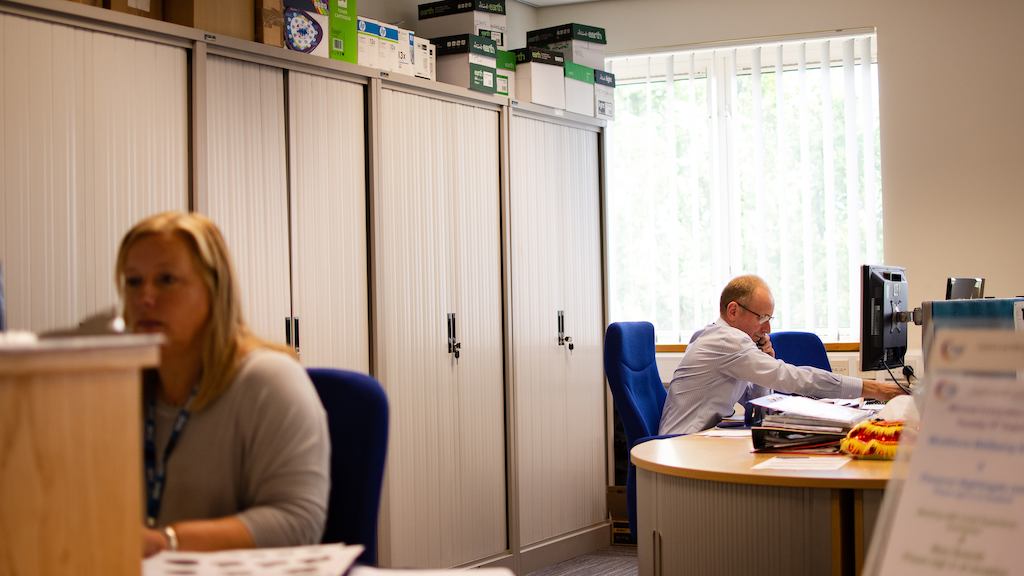Industry heavyweights lead development of 'mid-life MOT'

New report details pilots by Aviva, Legal & General, Mercer and the Pensions Advisory Service to help workers in mid-life make realistic choices about their career development, health and finances.
Supporting people in mid-life can give them time and space to prepare for the next stage of their career. Employers can benefit from an investment in the retention of their most experienced workers.
A joint report, ‘Developing the mid-life MOT’, published today, outlines the response by industry to the Cridland Review’s call for a better way of supporting people in their 40s, 50s and 60s to think about their careers and future lives.
The report presents case studies of different approaches to the ‘mid-life MOT’ being tried out by Aviva, Legal & General, The Pensions Advisory Service (TPAS) and Mercer and offers insights to other employers thinking about introducing similar support for their own workers.
All four organisations agreed on the benefits of engaging both employees and self-employed people in a sustained way to help them plan their careers and finances and think about their health in later life.
Participants in the pilot schemes said they valued the support offered, especially the combination of different types of guidance, for example, finances, health and careers.
The report suggests it is important that a mid-life MOT is the start of an engagement process, with participants signposted and encouraged to take up further support. Mid-life MOTs need a clear purpose that is understood by all stakeholders and participants.
Developing the mid-life MOT
There are a range of lessons for anyone considering developing a mid-life MOT to consider:
-
Know your target audience – consider the purpose and intended outcomes
-
‘Age’ is not a fixed concept – consider what age group you’re targeting the service to
-
There is no ‘one size fits all’ for delivery – whether by telephone consultations, face-to-face, groups sessions or online tools consider what format is most applicable and effective for the intended participant group
-
Keep the content focused – MOTs can’t cover everything, prioritisation in content is important to maintain focus, clarity of purpose and participant engagement
-
The mid-life MOT is a process not a one-off event – practical outputs, signposting and follow ups are needed to engage and benefit participants
Patrick Thomson, Senior Programme Manager, Centre for Ageing Better said:
“As more of us live longer, we need to act earlier in life to enable us to stay healthier, work for longer, and save more if we are to enjoy our later lives. People in mid-life could benefit from better access to information and advice to plan and prepare for their later lives. We look forward to continuing to work collaboratively with government, employers and providers to ensure everyone who needs support can benefit and to test out these promising approaches to find out what works.”
Lindsey Rix, Managing Director of Savings & Retirement at Aviva said:
“The mid-life MOT can represent a win for our employees, for employers and for UK plc. Aviva is delighted to join this report’s “coalition of the willing” to demonstrate the power of a mid-life MOT. We hope others will follow where we lead.”
Planning and preparing for later life
Chris Knight, CEO of Legal & General Retail Retirement, said:
“At Legal & General, we believe the mid-life MOT has the potential to break down the before and after retirement barrier. It’s a great way to kickstart retirement conversations, giving people the opportunity to take stock of their finances, career plans and health in good time. We’ve already trialled an MOT with our own employees, but to have a real, positive impact on society, this needs to be an everyday feature for people in their 40s and 50s. Today’s report sets out how we can start that journey and take a significant step in helping more people enjoy a happy, healthy retirement.”
Michelle Cracknell, Chief Executive, The Pensions Advice Service (TPAS) said:
“We have been strong supporters in the need for the mid-life MOT as an intervention to encourage people to think about their future and the retirement income they may need. Our pilot focused on the self-employed. It is a very diverse group but all with different needs, and possibly attitudes, to the employed. We designed the review to be relevant to the issues that occupy their thinking; work, health, family and money. The positive results have encouraged us to seek to roll out the service to help more self-employed people.”
Yvonne Sonsino, Innovation Leader for Europe and the Pacific, Mercer, said:
“Many of us get to a point mid-life where we want to understand our financial, health and career status and how it fits with our future aspirations. To get a full picture we will need a single place to check in on our health, finances, career and learning opportunities. Mercer is excited to be part of this group exploring and creating a variety of working models. We encourage employers to start checking in on what their employees want and need in this area.”
This case study report offers insights from four leading employers on mid-life MOTs. The Centre for Ageing Better and Calouste Gulbenkian Foundation have also commissioned some research from the Institute for Employment Studies, ‘Thinking ahead’, to look more representatively at a broader range of employers to understand what they are already offering to support people to plan for mid-life.
On 18 October Aviva announced that it is to roll out a 'Mid-life MOT' from 2019
Patrick Thomson, Senior Programme Manager, Centre for Ageing Better, said:
“It’s great to see a large employer like Aviva committing to helping employees think about and plan for the future. With many more of us living and working for longer, being able to plan for our future lives at home and at work is increasingly important.
“Our research shows that people really value having access to information and advice in mid-life and, crucially, having the time and support from their employer to think about things like career development, finances, maintaining their health and relationships, and their aspirations for the future.”
